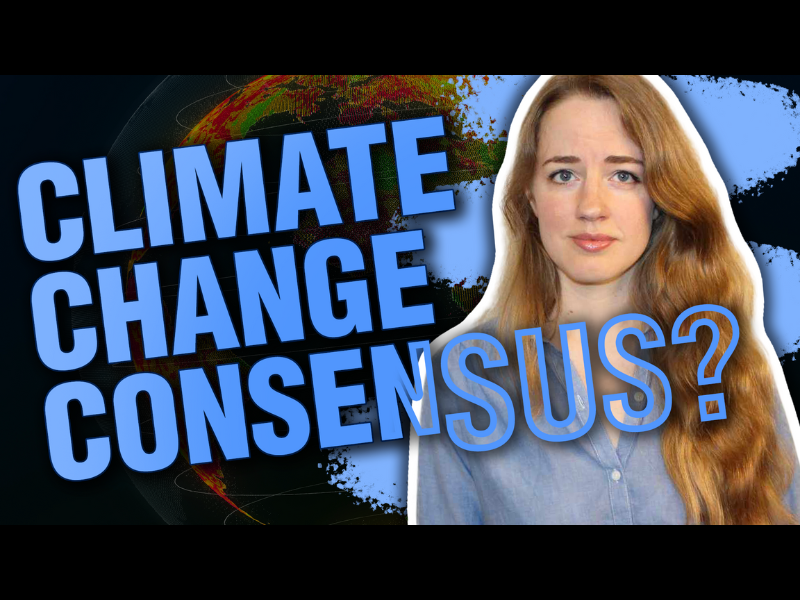In what should prove to be a precedent-setting decision, U.S. District Judge William Alsup dismissed the climate liability lawsuit brought against five oil companies by the cities of Oakland and San Francisco.
In his June 25 decision, Alsup decided Congress and the president were best suited, as opposed to cities, states, or the judiciary, to determine what to do about human greenhouse gas emissions from the use of fossil fuels. Alsup said if he allowed the lawsuit to continue and the plaintiffs won, he would essentially be allowing two cities to set U.S. domestic and international energy and climate policy, which would violate the Constitution’s division of powers and federal law.
“[P]laintiffs’ claims require a balancing of policy concerns. … Importantly, ‘[t]he political branches, not the Judiciary, have the responsibility and institutional capacity to weigh foreign-policy concerns,'” writes Alsup, citing a ruling from a previous case.
In addition, sounding like he’d read The Heartland Institute’s Policy Brief developed for him outlining the social benefits of fossil fuels, Alsup argued any harm greenhouse gas emissions may cause must be weighed against the tremendous benefits fossil fuels have delivered to the world.
“We must weigh this positive: our industrial revolution and the development of our modern world has literally been fueled by oil and coal,” Alsup wrote. “Without those fuels, virtually all of our monumental progress would have been impossible. All of us have benefitted. Having reaped the benefit of that historic progress, would it really be fair to now ignore our own responsibility in the use of fossil fuels and place the blame for global warming on those who supplied what we demanded?”
Alsup’s 16-page decision shook climate alarmists’ legal strategy—attacking fossil fuels, progress, and modernity—to its foundations.
Scholars from The Heartland Institute uniformly praised Alsup’s ruling in a press release following the decision, though some were clearly more surprised by it than others.
“As expected [italics added], Judge William Alsup dismissed the lawsuit filed by cities in California alleging oil companies should be held liable for flooding and other imagined damages caused by ‘global warming,'” said Joseph Bast, director of The Heartland Institute. “Along with reaching the right decision on the basis that difficult trade-offs concerning national energy and environmental policies are best left to elected officials, Judge Alsup showed an admirable interest in the science of climate change and the benefits as well as the costs of using fossil fuels.”
“As expected?” Hardly, at least by me. Although I hoped in my heart of hearts Alsup would follow the law, I feared and expected him to, as all too many judges do, substitute his policy preferences for that of the law on this matter. I have rarely been more pleased to be wrong.
Heartland Institute President Tim Huelskamp seemed equally surprised by the ruling, saying, “Judge Alsup did the right thing by tossing out this climate shakedown lawsuit, a surprising result considering the venue—a city filled with powerful people deluded into thinking humans are causing a climate crisis,” Huelskamp said. “It is not often the eco-Left gets such a public spanking and that common sense prevails in today’s federal courts. This should put an end to other ridiculous and wasteful lawsuits, which essentially stand against modernity.”
In the end, Oakland and San Francisco were wrong on the science, policy, and critically, the law. One can only hope judges in lawsuits filed against the fossil fuel companies by other cities, states, and interest groups will follow Alsup’s lead and dismiss these cases—and award legal costs to the companies for having to fight these unmeritorious claims.
— H. Sterling Burnett
SOURCES: Science; Associated Press; California v. BP Decision; The Heartland Institute; The Heartland Institute
IN THIS ISSUE …
NZ’s government takes political decision to end offshore oil … Species thriving during warming … Geological Society fellows reject organization’s climate position … Vincent Gray, RIP
NZ’S GOVERNMENT TAKES POLITICAL DECISION TO END OFFSHORE OIL
The decision by New Zealand’s Prime Minister to ban new offshore oil and gas development was a purely political, not vetted by her cabinet or determined to be necessary or justified by any research.
A spokesman for the energy ministry said the cabinet had neither been consulted on nor voted on the decision to end new offshore oil and gas leases before Prime Minister Jacinda Ardern announced it at an April press conference. The ministers were informed of the decision shortly before the press conference.
In addition, recently disclosed documents reveal the decision was made without any research into the need for the plan or its effects on New Zealand’s economy or the environment.
In a statement, Ardern admitted the decision had not gone through the usual discussion process within the cabinet. “The decision on future oil and gas block offers was a political decision made by the Government parties [i.e., leaders of the parties in her coalition government],” Ardern’s statement said. “This … does tend to be the exception rather than the rule.”
Former energy minister Simon Bridges, a member of parliament and leader of the opposition National Party, said Ardern’s action amounted to “governing by decree” and was made without concern for its impact on economic productivity.
“The Opposition accused the Government of hastening the decision to allow Ardern to announce it on the eve of her departure for a high profile trip to Europe,” reports Stuff. On her trip, Ardern met with the prime ministers of Canada, France, and Germany to discuss climate change and socially responsible trade, among other topics.
SOURCE: Stuff
SPECIES THRIVING DURING WARMING
New research indicates species diversity is increasing in mountain regions, and species living on habitat edges may have more time to adapt to climate changes than previously thought.
Based on climate models, many studies speculate some species, especially those living close to the edge of their habitats, will not be able to migrate fast enough to keep up with changing environmental conditions. These studies are based on climate models that represent habitats or ecosystems as relatively static (which they are not) and do not include the beneficial fertilization effect of rising carbon dioxide levels, among other limitations. A new paper published in Science Direct indicates for forest ecosystems there is a transient “relaxation” response to habitat disequilibrium and climate changes, affording species potentially hundreds of years in some locations to adapt to a changing climate or migrate to new, suitable habitats.
The researchers at CO2 Science reviewed numerous studies over the decades lending support to the Science Direct paper’s hypothesis, noting atmospheric carbon dioxide enrichment tends to ameliorate any harmful effects of rising temperatures on earth’s vegetation, increasing plant biodiversity as a result.
Most recently, CO2 Science summarized a new paper in Nature from a 53-member research team analyzing “a massive continent-wide dataset of repeated plant surveys from 302 mountain summits across Europe dating all the way back to 1871 in an effort to ‘assess the temporal trajectory of mountain biodiversity changes.'”
Instead of declining biodiversity, the researchers found “a continent-wide acceleration in the rate of increase in plant species richness, with five times as much species enrichment between 2007 and 2016 as fifty years ago, between 1957 and 1966. This trend of increasing biodiversity was ‘consistent across all [continental regions], with no single region showing the opposite pattern,'” reports Nature.
SOURCES: Science Direct (behind paywall); CO2 Science
GEOLOGICAL SOCIETY FELLOWS REJECT ORGANIZATION’S CLIMATE POSITION
Thirty-three current and former fellows of the Geological Society of London (GSL) wrote an open letter to its president criticized what they characterized as the society’s unscientific position on climate change.
The researchers state the GSL’s position on Anthropogenic Global Warming “is outdated and one-sided, and is distracting attention and funding from real issues of pollution such as plastic and other noxious industrial and domestic waste.” The authors say GSL’s position paper goes farther even than the Intergovernmental Panel on Climate Change (IPCC) by claiming “the only plausible explanation for the rate and extent of temperature increase since 1900, is the exponential rise in [carbon dioxide] and other greenhouse gases in the atmosphere since the Industrial Revolution,” denying the fact as much as half the recent warming happened before most anthropogenic greenhouse gases entered the atmosphere, which even the IPCC acknowledges.
In addition, the fellows argue GSL has the responsibility to go on the offensive and “refute the exaggerated claims … such as that [carbon dioxide] and Climate Change cause: more hurricanes, more rain, more drought, more asthma and now, even more terrorism (through drought in Africa).”
The letter states, “Climate models fail to model past climates accurately and consistently overestimate future temperature trends, nor are they able to explain … the current hiatus or pause in warming; why the 285 ppm of atmospheric [carbon dioxide] estimated for the beginning of the Industrial Revolution is in any way a desirable benchmark [as it] coincides with the Victorian Little Ice Age, a period of starvation and population decline, which cannot possibly be a desirable target, unless you want to depopulate the earth; climate models always predict higher temperatures than actually occur,” among other problems with the models.
The authors say GSL’s current position papers are unsound and insupportable, writing, “Climate is and always will change, but the evidence that this is due primarily to [carbon dioxide], is not forthcoming. If the strong natural forcings that are so well described in the GSL papers have more impact than [carbon dioxide], then we should be spending more of our limited resources on finding ways to adapt to negative climate change.”
SOURCE: Watts Up With That
Climate researcher Vincent Gray passed away in mid-June.
In a letter to friends and colleagues reporting Gray’s death, Heartland Institute Director Joe Bast wrote, “It is with sincere regret that I pass along news of the passing of Vincent Gray, a true pioneer and giant among critics of the global warming alarmism. He passed away on June 14th near his home in New Zealand.”
Bast noted Gray’s critique of the IPCC’s Second Assessment, Climate Change 95: An Appraisal, was Heartland’s first publication devoted to climate change. Gray spoke at Heartland’s first International Conference on Climate Change (ICCC-1) in March 2008 in New York City and contributed to all five volumes in the Climate Change Reconsidered book series, Bast noted.
“A gentleman and a scholar, deeply committed to science and honesty in the policy debate, Vincent Gray will be sorely missed,” Bast wrote in conclusion.
The Science and Environmental Policy Project’s homage to Gray called him
a stalwart defender in the battle to keep rigorous science [from] descending into bureaucratic nonsense[,] … an enthusiastic expert reviewer of all five Assessment Reports by the UN Intergovernmental Panel on Climate Change (IPCC), [whose] comments number in the thousands, and he was effective. Gray singularly fought the IPCC for using the term predictions to describe the results of the global climate models because the models used have not been verified and validated. They have not been meticulously tested, scientifically. Gray won. The IPCC uses the term ‘projections.’
With the late Robert Carter, Gray cofounded the New Zealand Climate Science Coalition and wrote two books on climate change: The Greenhouse Delusion: A Critique of Climate Change 2001 (2002) and The Global Warming Scam (2015). Both are available on Amazon.
SOURCE: Science and Environmental Policy Project
The Climate Change Weekly Newsletter has been moved to HeartlandDailyNews.com. Please check there for future updates!





